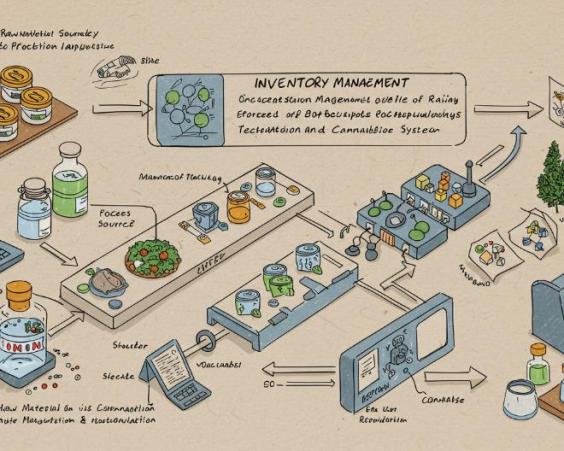How Efficient Logistics Can Reduce Costs in Small Businesses
In the competitive world of small businesses, efficient logistics management is key to keeping operational costs under control and maximizing profitability. Well-managed logistics not only improve the flow of products and services but also significantly contribute to cost reduction. This article explores how efficient logistics can help reduce operational expenses and improve profitability in small businesses, highlighting practices and strategies that can be implemented to achieve this.

1. Inventory Optimization Effective inventory management is crucial for reducing costs. Using an inventory management system like Inventarios1A allows for precise control of available stock, avoiding both excess and scarcity of products. By maintaining optimal inventory levels, you can minimize tied-up capital and reduce costs associated with storage and obsolescence. Implementing methods such as just-in-time (JIT) inventory also helps reduce costs by minimizing storage space and improving inventory turnover.
2. Reduction of Storage Costs Storage can represent a significant expense for small businesses. Optimizing warehouse space usage through techniques such as adjustable shelving and the use of vertical storage solutions can reduce space costs and improve operational efficiency. Additionally, good space management allows for faster access to products, accelerating the order preparation process and reducing handling time.
3. Improvement in Supplier Management Maintaining solid relationships with suppliers and negotiating favorable contracts can reduce costs in the supply chain. Establish agreements with suppliers that offer volume discounts, extended payment terms, or reduced shipping rates. Use a supplier management system to evaluate supplier performance and select those that offer the best quality-price ratio. Optimizing supplier management can also lead to better coordination in product delivery, reducing costs associated with delays or quality issues.
4. Implementation of Logistics Technology Technology plays a crucial role in logistics efficiency. Software management tools, such as Inventarios1A, allow for a seamless integration between inventory, purchasing, and sales processes, improving visibility and control. Automating processes, such as generating purchase orders and updating inventories in real-time, reduces the need for manual intervention, decreases the risk of errors, and accelerates workflow. Investing in adequate technology can lead to a significant reduction in operational costs in the long term.
5. Optimization of Delivery and Transportation Transportation and delivery costs can be a considerable burden for small businesses. Optimize delivery routes using route management software that allows for efficient route planning and reduces fuel consumption. Consider consolidating orders to reduce the number of shipments and minimize transportation costs. Additionally, choosing reliable logistics partners and negotiating competitive shipping rates can contribute to reducing transportation expenses.
6. Efficient Management of Returns Poorly managed returns can significantly increase operational costs. Establish a clear and efficient process for handling returns, from receipt to replacement or refund. A well-implemented returns management system can minimize the financial impact of returns and ensure that products are returned to inventory effectively.
7. Reduction of Loss and Damage Costs Product loss or damage during storage or transportation can generate additional costs. Implement security measures in the warehouse to prevent theft and damage, such as surveillance systems and access controls. Use adequate packaging to protect products during transportation and minimize the risk of damage. Effective security and packaging management helps reduce losses and improve profitability.
8. Continuous Improvement and Data Analysis Continuous improvement is key to maintaining efficient logistics. Collect and analyze data on logistics performance, including delivery times, transportation costs, and return rates. Use this information to identify areas for improvement and adjust processes as necessary. Continuous evaluation allows for implementing changes that optimize efficiency and reduce costs.
Efficient logistics not only improve the operation of small businesses but also play a crucial role in reducing operational costs and increasing profitability. By optimizing inventory management, reducing storage costs, efficiently managing suppliers, implementing adequate technology, optimizing transportation, and managing returns efficiently, you can achieve significant improvement in your business's efficiency. Investing in logistics strategies and continuous improvement is fundamental to maintaining competitiveness and achieving success in the market.





